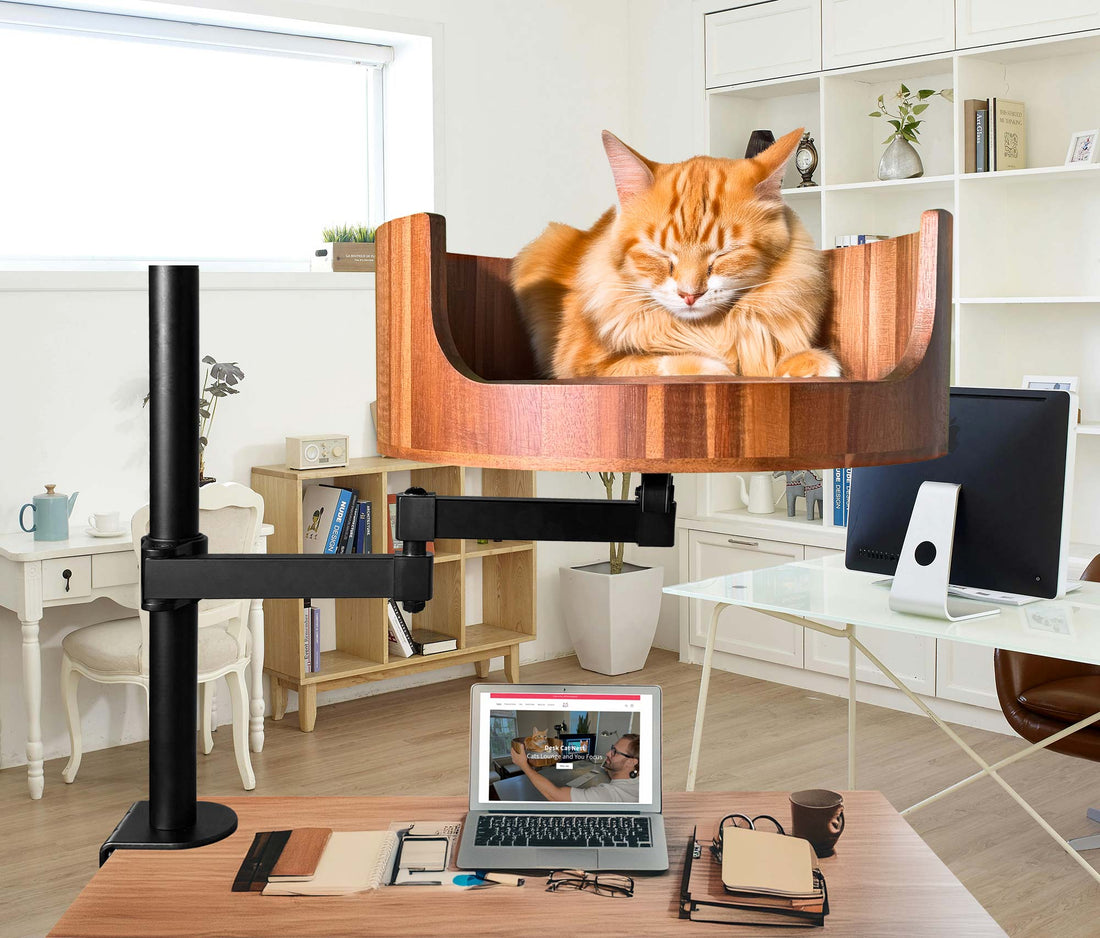
Why is my cat eating catnip? Understanding the Behavior
Share
Many cat owners are familiar with the sight of their furry feline friend indulging in catnip, but have you ever wondered why your cat loves it so much? In this article, we delve into the intriguing behavior of cats when it comes to catnip consumption. From the science behind why cats are attracted to catnip to the potential benefits and risks associated with its consumption, this article aims to provide a comprehensive understanding of this common behavior among our beloved pets.
Catnip, also known as Nepeta cataria, is a member of the mint family that produces a unique scent that is irresistible to many cats. When cats come into contact with catnip, they often exhibit behaviors such as rolling around, rubbing their face on it, and even eating it. While not all cats are affected by catnip (approximately 50% of cats have a genetic predisposition to respond to it), those that do can experience a temporary euphoric state. However, it is important for cat owners to be aware of the potential risks associated with excessive catnip consumption, such as digestive issues and behavioral changes. By gaining insight into why cats are drawn to catnip, pet owners can better understand and cater to their feline companions' needs.
1. Catnip is a natural herb that contains a compound called nepetalactone, which triggers a euphoric response in cats when they smell or ingest it.
2. Not all cats are affected by catnip, as sensitivity to the nepetalactone compound is genetic and only around 50-70% of cats exhibit a reaction to it.
3. Cats may eat catnip to self-soothe or alleviate stress, as the herb has calming effects on felines.
4. Catnip can also act as a stimulant, causing hyperactive behavior in some cats when consumed in large quantities.
5. It is important for cat owners to monitor their pets' response to catnip and use it in moderation to avoid overstimulation.
What is Catnip and Why do Cats Love it?
Catnip, also known as Nepeta cataria, is a plant that belongs to the mint family. It contains a compound called nepetalactone, which is known to induce a euphoric response in cats when they sniff or consume it. This compound causes a temporary behavioral change in cats, including rolling around, vocalizing, and increased energy levels. Not all cats are affected by catnip, as sensitivity to it is a genetic trait. Approximately 50-70% of cats are responsive to catnip.
Why is my Cat Eating Catnip?
Cats may eat catnip for various reasons, including curiosity, stress relief, or as a form of play. Some cats may even be attracted to the taste of catnip. When cats consume catnip, the effects are slightly different from just sniffing it. Eating catnip can cause a sedative effect on cats, which can help them relax and reduce anxiety. However, too much catnip consumption can lead to gastrointestinal issues such as vomiting or diarrhea. It is essential to monitor your cat's intake of catnip to ensure they do not overindulge.
Is Catnip Safe for Cats?
Catnip is generally considered safe for cats, whether they are sniffing or consuming it in small amounts. However, like with any substance, moderation is key. Cats that ingest excessive amounts of catnip may experience mild digestive issues, but these symptoms usually resolve on their own. It is essential to provide high-quality, organic catnip to ensure the safety of your feline friend. Additionally, if your cat is pregnant, nursing, or has a medical condition, it is best to consult with a veterinarian before giving them catnip.
Alternatives to Catnip for Cat Enrichment
If your cat does not respond to catnip or if you are looking for other ways to enrich your cat's life, there are plenty of alternatives to consider. Some cats enjoy silver vine, valerian root, or honeysuckle as alternatives to catnip. Puzzle toys, interactive play sessions, and vertical spaces like cat trees can also provide mental and physical stimulation for your cat. Understanding your cat's preferences and trying different enrichment activities can help keep them happy and healthy.
Desk Cat Nest FAQs
Why is my cat eating catnip?
Cats are attracted to the smell and taste of catnip, as it contains a compound called nepetalactone that triggers a sensory response in cats when they come into contact with it. This can result in behaviors such as eating, rolling in, or rubbing against catnip.
Is it safe for my cat to eat catnip?
Yes, catnip is safe for most cats to eat in small amounts. However, consuming large quantities of catnip may cause stomach upset or diarrhea. It is recommended to monitor your cat's consumption of catnip and provide it in moderation.
Will using a Desk Cat Nest help prevent my cat from eating catnip?
Using a Desk Cat Nest can provide your cat with a dedicated space to play, rest, and engage in natural behaviors, which may help reduce the likelihood of your cat seeking out catnip as a source of stimulation. However, it is important to also provide other forms of enrichment and play opportunities for your cat.
In conclusion, providing your cat with a Desk Cat Bed can help address the issue of why your cat is eating catnip. This comfortable and cozy bed offers a safe and inviting space for your cat to relax and unwind, reducing the likelihood of seeking out alternative sources of stimulation like catnip. With its durable construction and plush design, the Desk Cat Bed not only provides a sense of security for your feline friend but also promotes better sleep and overall well-being. Make the choice to invest in a Desk Cat Bed today and provide your cat with a happy and healthy environment they deserve.



















































